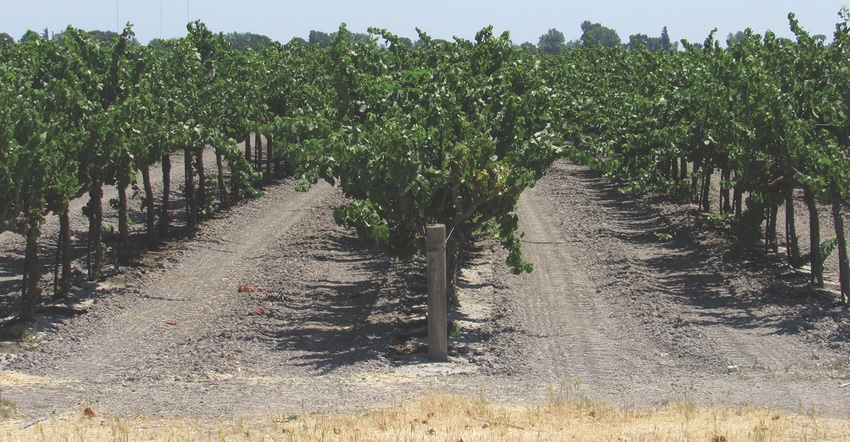
The second U.S. Sustainability Winegrowing Summit earlier this year drew virtual attendees all over the world to hear about the collaboration between the growers of high-quality grapes in California, Oregon, Washington, and New York.
Hosted by the California Association of Winegrape Growers, the California Sustainable Winegrowing Alliance, Washington, and Oregon Winegrowers among others, CSWA’s Executive Director Allison Jordan extended a welcome to the three-day event held to show the industry’s commitment to sustainability.
“We are united in a multi-state, multi-year project to build a sustainable future, a holistic approach that conserves natural resources and protects the environment while enhancing wine quality,” she said. “Seven out of 10 U.S. wine drinkers say they would consider buying sustainably-produced wines and nine out of 10 millennials reported they would even be willing to pay more for a sustainable product.”
It’s a concept that is already growing legs with California — the fourth largest wine-producing region in the world — noted as home to one of the world’s most widely adopted sustainable winegrowing programs in terms of grape acreage and wine case production.
CSWA cited a third of all California wine grape acres, some 204,000, as sustainably certified vineyards. “Eighty percent of California’s wine, some 255 million cases, are produced in 171 certified sustainable wineries,” they reported.
The keynote address on “Trends and Observations on Sustainable Winegrowing” was given by the Executive Wine Editor of Travel + Leisure and Departures magazines, Ray Isles, who can claim about six million combined readers.
“The more we talk about this concept, the more we increase the awareness of sustainability and we can do this in a number of ways,” he said, citing one Napa Valley vineyard owner who planned to take smoke-covered grapes from 2017 wildfires and make them into a brandy for her tasting room to get people thinking about the sustainability dialogue. “It’s creative public relations with a takeaway that the most important aspect of sustainability is actively practicing it — because the effects of not doing so are very real.
Make people aware
“First, you have to make people aware of the concept — then how you talk about it becomes important with words like organic, natural, clean, biodynamic — all designed to raise awareness to an all-time high.”
All of which becomes not only beneficial, but necessary. “There’s a reason that we, as humans, basically run the world, because we’re the only animals that cooperate in large numbers with some flexibility,” Isles said. “We’re also the only animal that through those attributes can potentially poison the entire earth, putting ourselves inline to be the first self-extincting species. Just another key reason why sustainability, be it in a vineyard, a winery, or literally everywhere else, matters so much.”
Warming to the subject, Isles noted: “If we do not maintain ecological balance on Earth, we are, by definition, unsustainable. Looking on the brighter side of sustainability as it pertains to wine, there are radically more producers and growers throughout the world working sustainably than there ever were before and that’s incredible heartening. In Sonoma County, the membership of the Sonoma County Wine Growers Association instituted a program that has resulted in 99% compliance as sustainable.”
Isles emphasized that sustainability was an inclusive concept throughout agriculture and farming — “In the broader picture, it’s winery structure being built more sustainably, the use of recycled materials, solar and other forms of energy generation, harvesting protocol, green energy delivery vehicles, even recycled paper for wine labels.”
From the grower/vintner standpoint, support and participation of the concept is just good business. “Millennials, the generation fueled by technology, are changing their habits to reduce their impact on the environment and 90% of this group is willing to pay more for environmentally-friendly products. And they’re the digitally-engaged group that already has a wine purchasing app on their cell phones.”
About the Author(s)
You May Also Like




